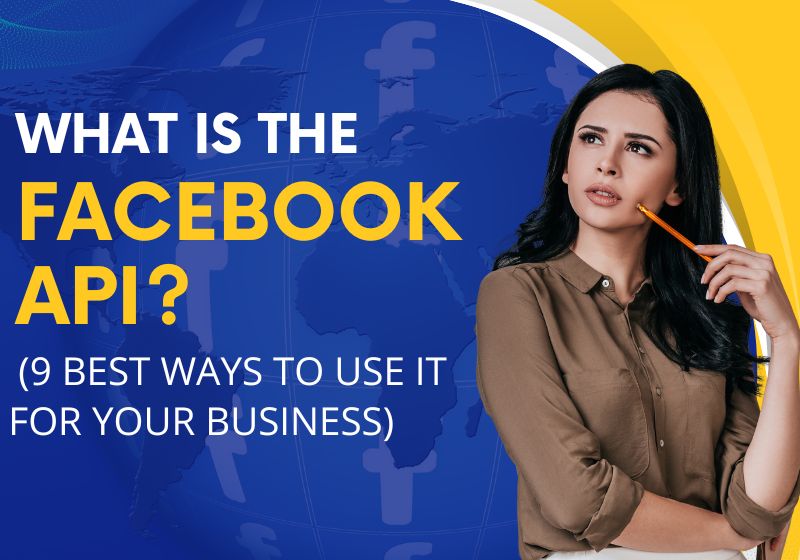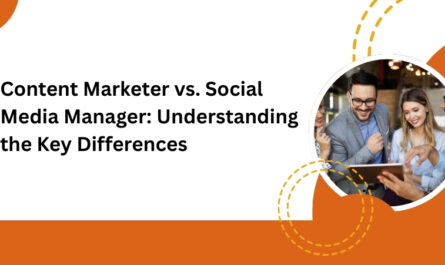Facebook is the world’s largest social network, and its open API allows businesses to create powerful integrations with the platform. The Facebook API is part of Digital Marketing that enables businesses to access and manipulate data from their own, or third-party, Facebook applications. Companies can use the API to build custom tools and services, as well as to access and analyze data from their customers, partners, and more.
In this blog post, we’ll discuss what the Facebook API is, and how businesses can use it to their advantage with nine powerful ways to leverage it for your business.
What is the Facebook API?
Facebook’s Application Programming Interface (API) is a powerful tool that enables developers to access, modify and control data on Facebook and other related platforms. With the Facebook API, developers can create custom applications, automate processes, and integrate Facebook into their websites and applications.
In the past, businesses relied on manual processes to interact with customers and track user engagement. However, the Facebook API has revolutionized customer service by allowing businesses to automate processes, target users, and engage with them in real-time.
The Facebook API has become an essential tool for businesses of all sizes. It allows developers to create custom applications, automate processes, and integrate Facebook into their websites and applications. Here are 9 ways to use the Facebook API for your business
Here are the 9 Best Ways to Use Facebook API for Your Business
1. Automate customer service processes
By utilizing the Facebook API, businesses can create customer service bots that respond to customer inquiries and complaints quickly and accurately. Bots can be programmed to recognize and respond to customer inquiries and complaints. They are also able to provide personalized customer service, ensuring that each customer receives the best service possible.
Furthermore, bots can also be used to provide customer feedback and suggestions, giving businesses valuable insights into customer behavior and preferences.
The Facebook API can also be used to automate customer service processes such as processing orders, tracking shipments and handling payments. Bots can be programmed to recognize customer orders and process them quickly and accurately. Furthermore, bots can be used to track shipments, notify customers of order status updates, and process payments.
By automating customer service processes, businesses can save time and money and provide a better customer experience.
2. Monitor user engagement
The Facebook API allows businesses to monitor user engagement with their products and services. This can help businesses understand customer preferences and tailor their products and services accordingly.
3. Promote content
By using the Facebook API to promote content, you can create highly targeted campaigns that reach the people who are most likely to be interested in your business. You can use the API to target users by age, gender, location, interests, and more.
This means that you can create campaigns that are tailored to your specific audience, helping to ensure that you reach the right people. The Facebook API also allows you to track the performance of your campaigns.
With this powerful tool, you can see how many people are engaging with your content, how many people are sharing it, and more. This helps you to better understand your audience and make adjustments to your campaigns. This also helps you to optimize your campaigns for better results.
4. Create custom applications
The Facebook API allows businesses to create custom applications that integrate with Facebook. This can be used to build custom survey applications, customer loyalty programs, and more.
5. Track user behavior
The Facebook API allows businesses to track user behavior and analyze data to improve products and services. This can help businesses optimize customer experiences and increase customer satisfaction.
6. Connect with customers
The Facebook API allows businesses to connect with customers and engage with them in real-time. This helps to build relationships and gain customer loyalty.
7. Integrate with other platforms
The Facebook API allows businesses to integrate with other platforms such as Twitter, Instagram, and YouTube. This helps to expand customer reach and gain more exposure.
8. Track ad performance
The Facebook API allows businesses to track the performance of their ads and optimize campaigns accordingly. This helps to increase ROI and boost sales.
9. Create custom audiences
Creating custom audiences on Facebook is essential for any business looking to maximize their marketing efforts and increase conversions. With the Facebook API, companies are able to create tailored audiences based on their users’ behavior and demographics. This allows them to target the right people with the right message at the right time, leading to more effective campaigns, more sales, and better return on investment.
Custom audiences allow businesses to segment their users into different groups based on their preferences, interests, and behavior. For example, if a company sells shoes, they might create an audience of users who have recently visited their website and shown interest in their product. This allows the company to target those individuals with advertisements specifically tailored to their interests and needs.
Conclusion
The Facebook API is an incredibly powerful tool that can be used to enhance the capabilities of an individual or business. With the ability to access a variety of data points, including user profiles, posts, and other information, businesses can use this data to better target their customers and increase their revenue.
Furthermore, businesses can use the API to create applications, integrate with other services, and build custom experiences. These nine ways to use the Facebook API demonstrate the vast potential of this platform and how it can be used to benefit a business.Good Luck From Chandigarh Learning.
Facebook API is the part of digital marketing course.





